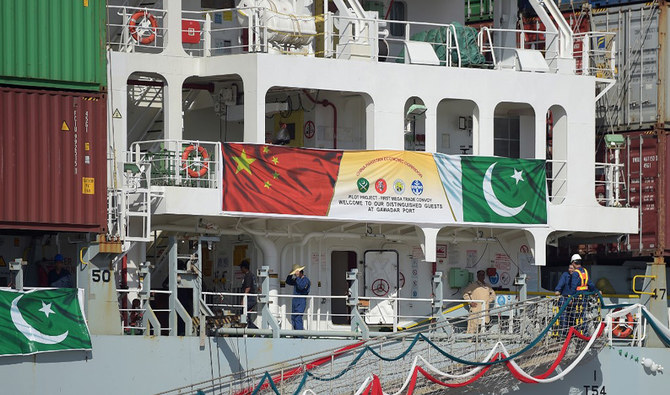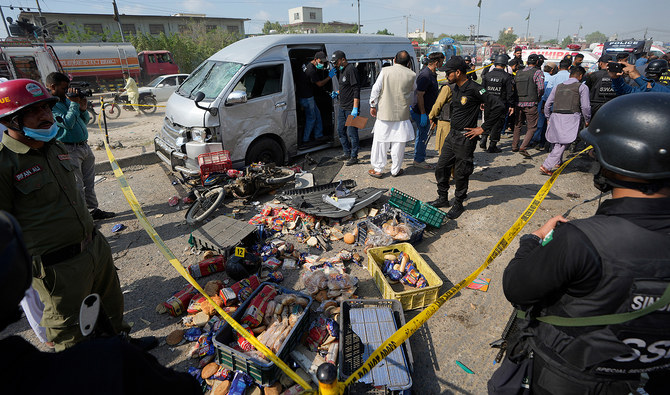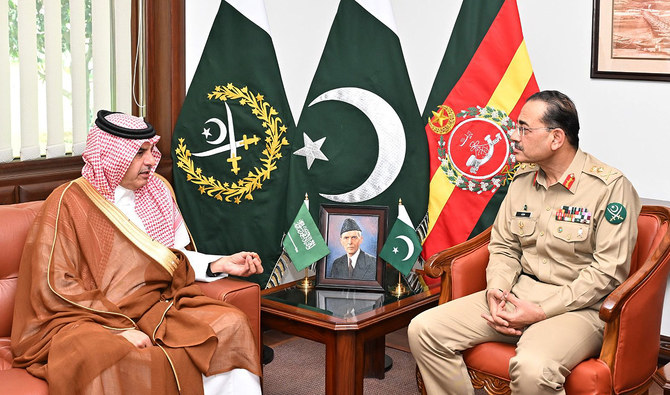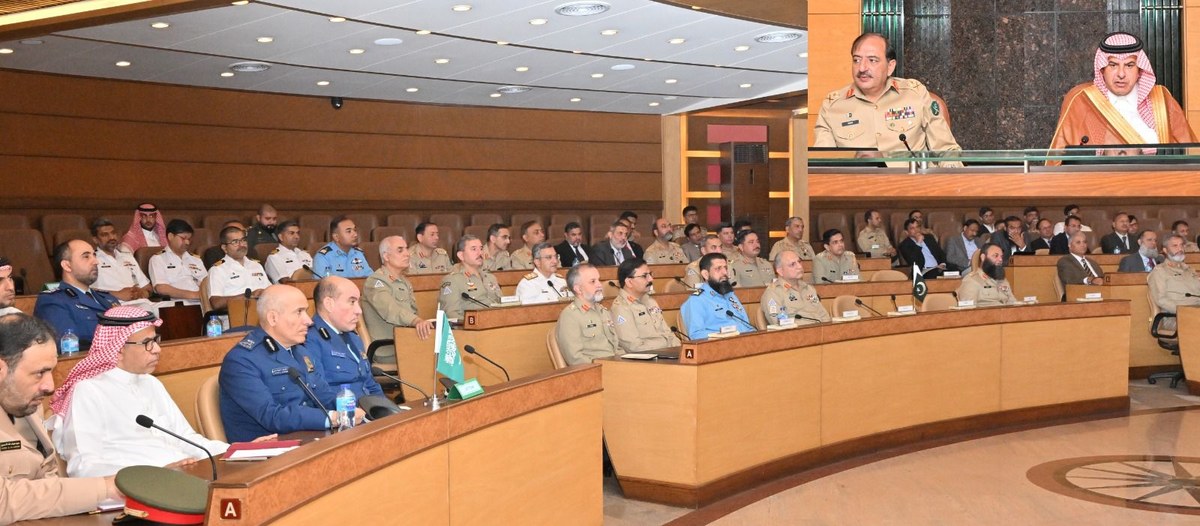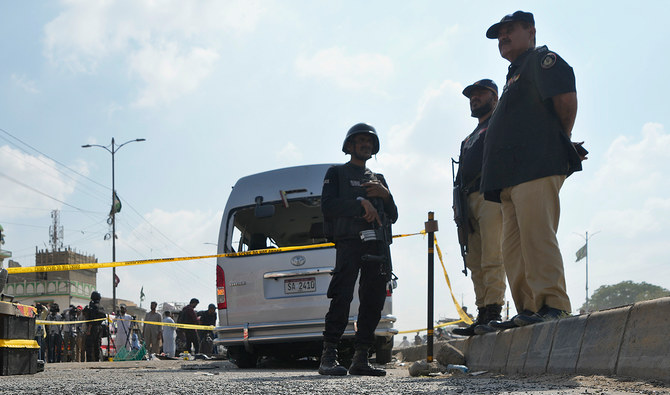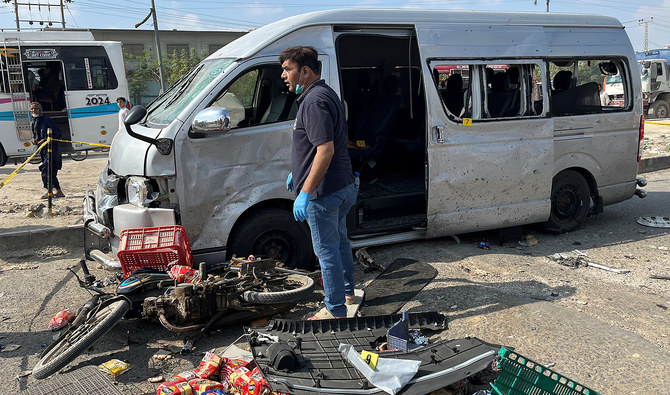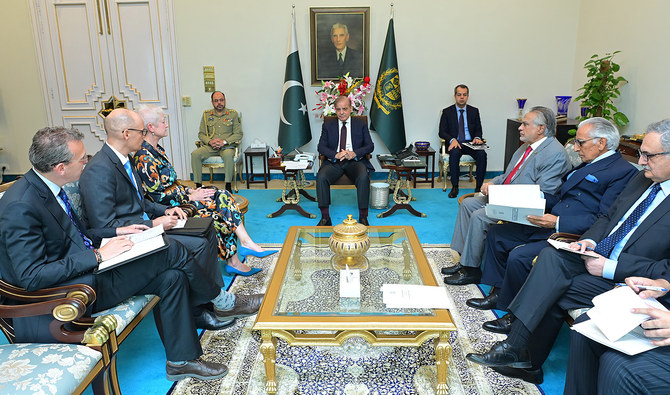ISLAMABAD: President Dr. Arif Alvi said on Thursday about 90 projects under the China Pakistan Economic Corridor (CPEC) umbrella had so far been completed, 28 were in the ‘implementation phase’ and 41 in the pipeline, Pakistani media reported.
The president was addressing a webinar on 'CPEC and its impact on the region,' organized by the Karachi Council on Foreign Relation.
Beijing has pledged over $60 billion for infrastructure in Pakistan under CPEC, central to China’s wider Belt and Road initiative to develop land and sea trade routes in Asia and beyond.
“Friendship between China and Pakistan is deeper than the ocean and higher than the skies,” Alvi said, adding that the Pakistan government expected Chinese’s investment and cooperation in every sector of its economy.
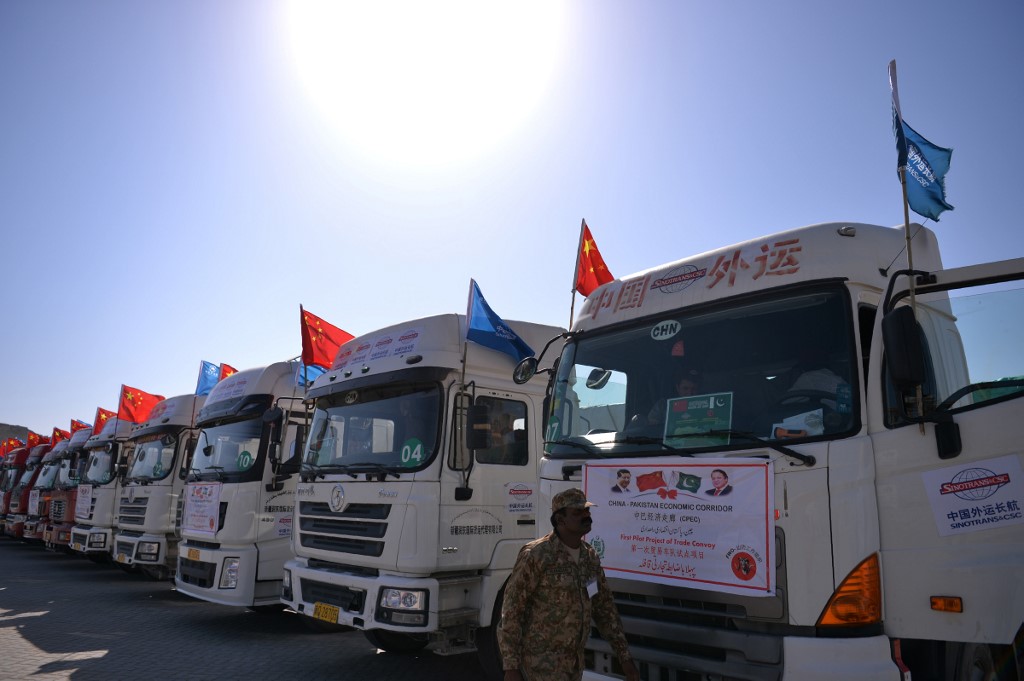
A Pakistani military personnel walks past Chinese trucks carrying goods during the opening of a trade project in Gwadar port, some 700 kms west of Karachi on Nov. 13, 2016. ( AFP/File)
Chinese investment did not “overburden” the Pakistani economy, the president added, but “it improves our financial system.”
Speaking about projects under CPEC, the president said the Multan-Sukkur Motorway of 392km had been completed, KKH Hawelian-Thakot expressway was completed in March this year, the ML-1 rail link project between Karachi and Peshawar would be inaugurated soon, an optic cable from Kunjerab to Islamabad had been laid, and another from Islamabad to Karachi and Islamabad to Gwadar was being built. A 300MW coal-fired plant and a desalination plant with a capacity of 1.3 million gallons per day (MGD) was also being processed.
The president said in the initial phase of CPEC, Pakistan had focused on energy production and so far nine projects had become operational with a 5,320 MW capacity, and three were under construction.
“We are currently preparing work on the phase-II of CPEC, which is also an expansion of phase-1 and there are four areas which are being focused,” said CPEC Authority Chairman Lt General Asim Saleem Bajwa (Retd), namely industrialization, agriculture, tourism and ports.



